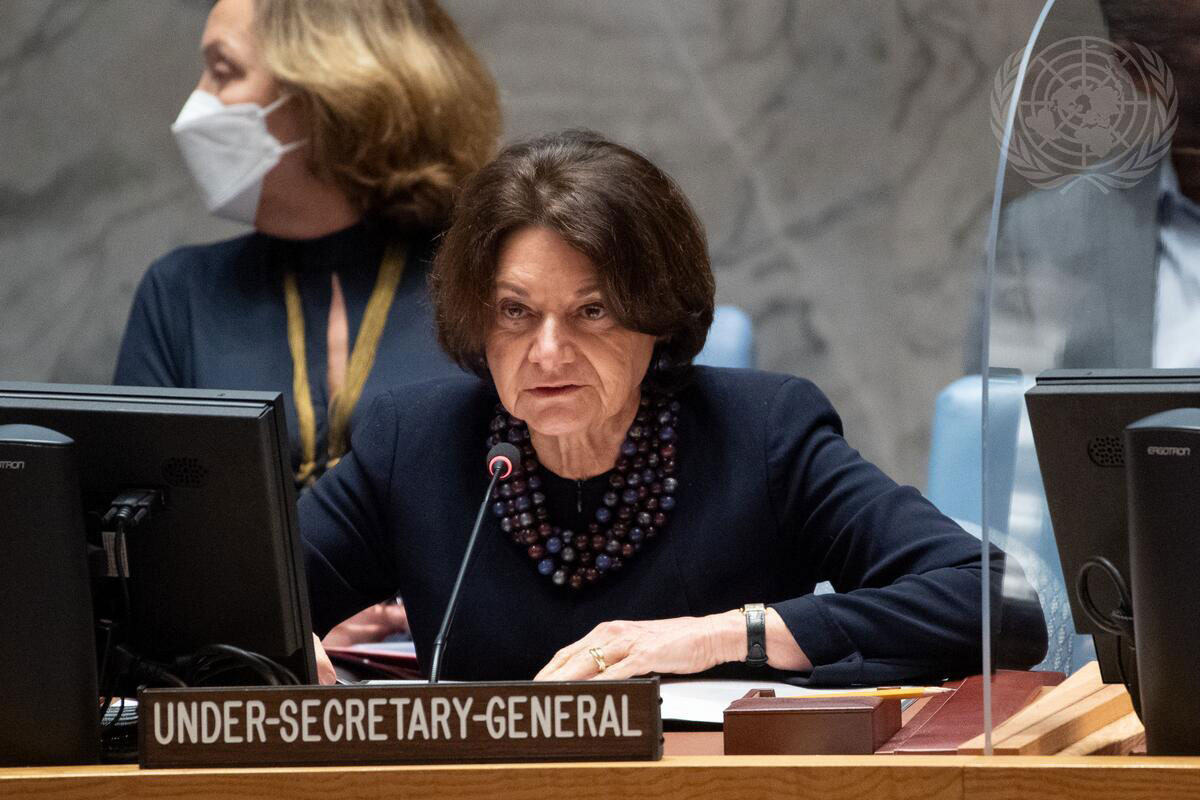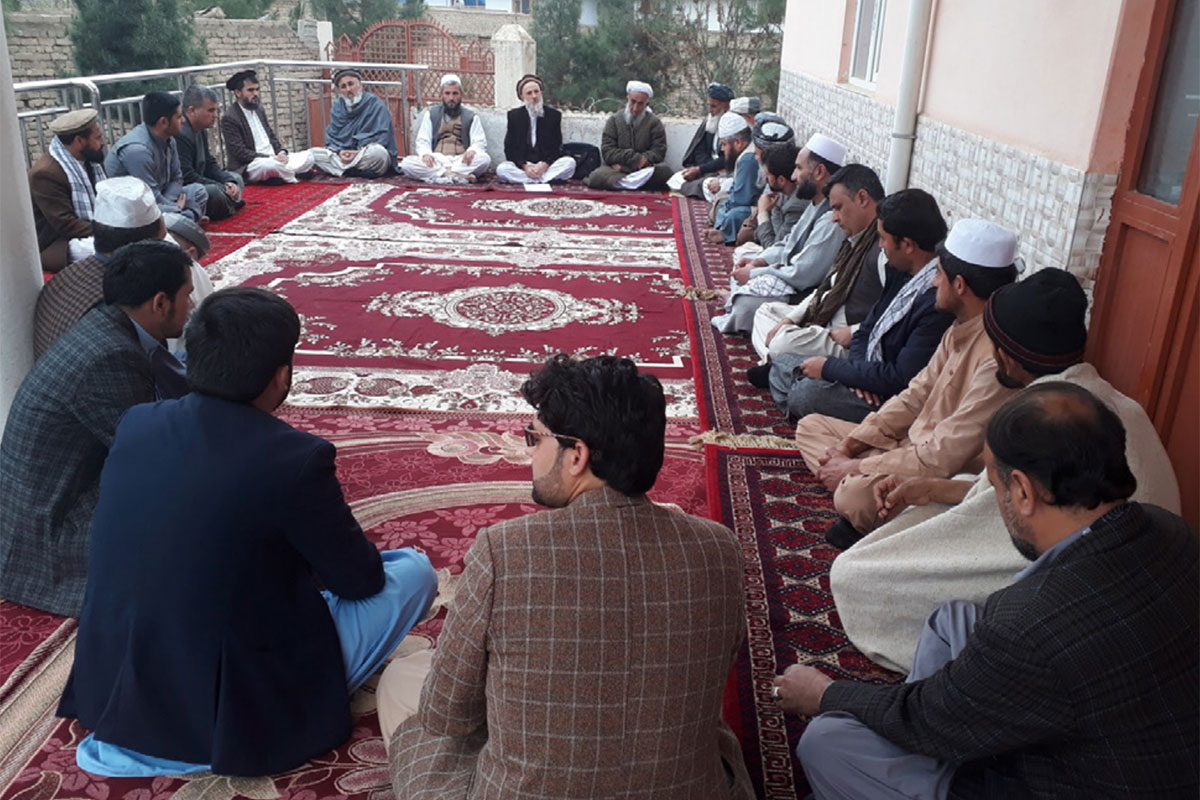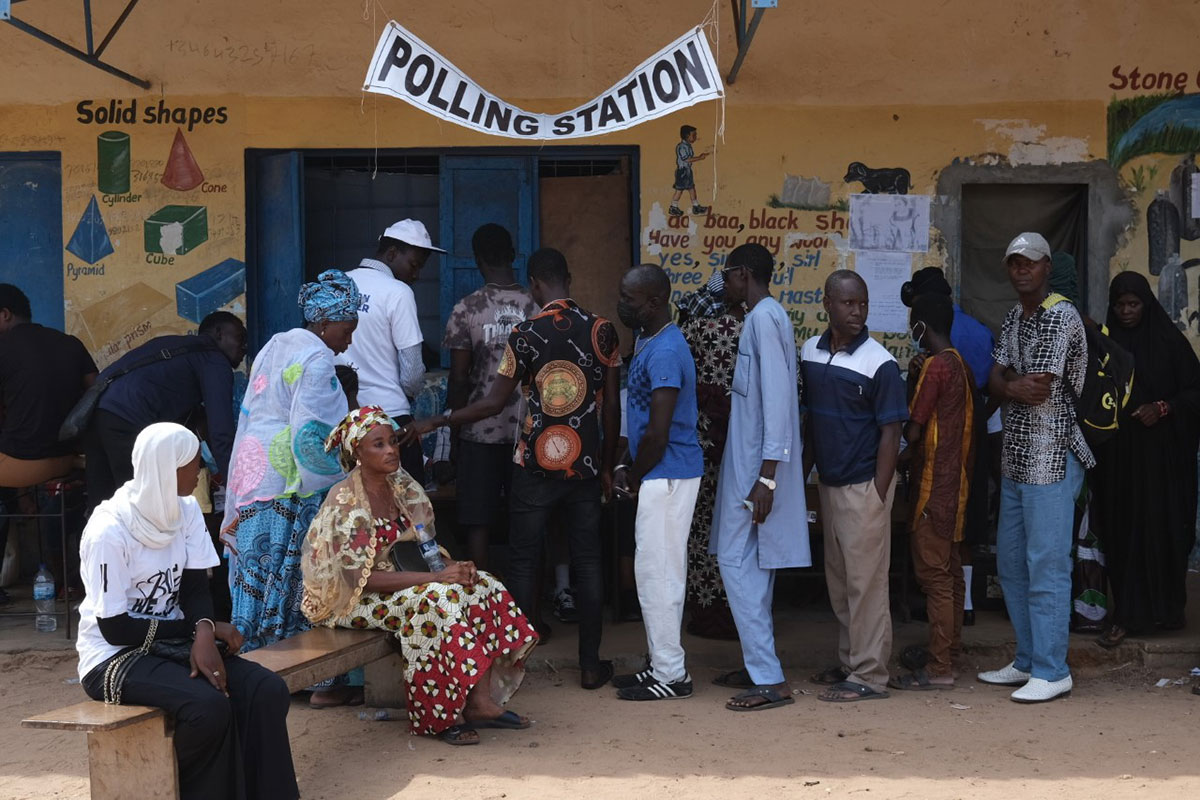Highlights and achievements in 2021
We expanded our conflict analysis to better respond to new threats
We continued to monitor global political developments and provided the Secretary-General with analysis that informed decision-making and shaped diplomacy at all levels. For example, our liaison team in Kyiv continuously monitored the rapidly changing situation in and around Ukraine which was invaluable to UN contingency planning and the engagement between senior UN leaders and Member States, including at the Security Council.
We continued to strengthen the quiet but essential support we provided in-country to Resident Coordinators and Country Teams to better identify threats and rapidly responded to potential outbreaks or escalations of conflict in contexts ranging from Afghanistan and Burkina Faso to the Horn of Africa, among others.
We developed and carried out more than 50 joint strategies and interventions with regional organizations around the world, an increase of 16 per cent compared to 2021.

We worked around the clock and around the world to prevent conflict
Through our 30 Special Political Missions, we support the good offices of the UN Secretary-General to help advance peace processes around the world. Our Special Envoys and Special Representatives enjoy the trust of their interlocutors, which makes them invaluable as mediators and allows them to support political transitions, help defuse crises and facilitate conflict resolution efforts.
In Libya, for example, the mission helped address deep-rooted disputes by initiating and facilitating intra-Libyan political, security and economic dialogues, after the signing of a permanent ceasefire agreement in October 2020. It supported the Libyan Political Dialogue Forum, which brought together women and men from across the political spectrum and achieved agreement on a roadmap to national elections.
We responded to crises and opportunities in record time
By using Rapid Response funds, we were able to quickly send in a team of experts or staff to begin engaging with conflict actors with their consent. This affords us valuable days and sometimes weeks of advance deployment time. In Western Sahara, within a week of the appointment of the new Personal Envoy, Staffan de Mistura, we funded additional staffing and expertise needed to support his efforts and restart the political process.
We bolstered our regional engagement
Our three regional offices in West and Central Africa and Central Asia were at the forefront of designing and implementing regional multidisciplinary responses to peace and security issues. After the coup in Guinea in September 2021, the SRSG and head of UNOWAS, Mahamet Saleh Annadif, helped to ensure a coordinated response among the UN, the African Union (AU) and ECOWAS.
We deployed mediation experts to negotiating tables around the world
We directly engaged with parties to conflict and provided guidance and backing to mediators, SRSGs and Special Envoys.
Our Mediation Support Unit oversees the Standby Team of Senior Mediation Advisers who can be rapidly deployed to provide advice on a wide range of issues that arise in mediation and preventive diplomacy efforts, funded entirely by the MYA. In 2021, the Standby Team provided operational support on 122 occasions in 28 different contexts from Bolivia to Georgia, Sudan and South Sudan.
For example, in Afghanistan our experts advised UNAMA on process design and victims’ participation in support of the then ongoing Afghanistan Peace Negotiations. This included options for the inclusion of women’s civil society initiatives and technical advice on constitutions and security arrangements.

Standby Team support in different regions (%)
We assisted Member States to conduct peaceful and credible elections
Demand for United Nations electoral assistance is growing, as is the duration and complexity of operations. Electoral support was provided to over 50 member states by deploying 24 missions. These included needs assessments in Bolivia, Lesotho, Malawi, São Tomé and Príncipe, South Sudan and Sudan.
Our Team of Experts continued to recommend parameters for UN electoral assistance, advising on the design of related mission components or projects, and offering political and technical guidance to all UN entities involved in electoral assistance. This includes advising on how to enhance the electoral participation of women and ensure their safety as a priority.

UN Electoral Assistance (2019-2021) by geographical regions
We pioneered new ways of addressing the impact of climate change
We expanded our work on the linkages between climate change, peace and security. Collaboration with regional organizations, Member States, civil society and research institutions, on climate security has advanced our understanding and reinforced DPPA’s standing as a thought leader in this complex risk landscape.
We supported action in most-affected regions and built the capacity of partners in the field by, for example, reaching over 750 practitioners with virtual trainings and maintaining an active UN community of practice working with the Climate Security Mechanism.
For example, in Central Africa, we supported in-depth assessments of climate-related security risks in the sub-region, including research visits to Cameroon, Chad and Gabon. We also provided technical advice and launched new workstreams in Iraq and Sudan.
We embraced innovation and new technologies
We invested in cutting-edge technologies, such as Artificial Intelligence, to reach out to broader audiences in our mediation efforts. This led to the inclusion of diverse voices in political processes – particularly the voices of women and youth. This lowered access barriers for groups that are traditionally excluded from decision-making and allowed political and peacebuilding processes to be more inclusive, for example in Libya, Bolivia and Iraq.
Through our Innovation Cell, we provided a forum for colleagues to engage collaboratively in human-centered design and problem-solving. This ranged from using open-source earth observation to identify climate-related conflict triggers, to forging connections with decision makers with virtual reality.
We advanced the meaningful inclusion of women
Our new WPS funding window further operationalized the agenda, by funding up to $7.2 million worth of projects in support of the inclusion of women in peace and political processes, a record high.
In Ecuador, for example, the Department strengthened the capacities of women parliamentarians, combating gender-based political violence, and supported crucial steps towards agreements with the National Assembly and the National Council for Gender Equality on strengthening the capacities of women in politics.
In Sudan, MYA funding fostered the engagement of 26 Sudanese women’s rights advocates in high-level advocacy during the talks between the Government of Sudan and the Sudan People's Liberation Movement-North.
Number of projects that were entirely dedicated to WPS or that significantly contributed to WPS
We empower local communities to build lasting peace
Through the Local Peace Initiatives window, resources are made available to directly support peace processes at the local level, to enhance the capacity of societies to address conflict, rebuild trust and engage in social reconciliation within and across communities.
In Myanmar for example, MYA funding enabled the Special Envoy’s continued engagements with two inter-communal, inter-religious and community-led networks in support of social cohesion efforts.
MYA funding to local peace initiatives in million US$ (2019-2021)
Our financial results in 2021
Despite the volatile economic situation around the world, many donors continued their unwavering support throughout 2021, albeit on a smaller scale than in 2020. A total of $28.5 million was received from 35 donors.
However, the overall appeal remained only 72 per cent out of the 40 million requested in 2021. This represents a funding gap of $11.5 million – 28 per cent.
MYA 2021
The shortfall of $7.2 million in contributions compared to 2020 was a sharp decline in the overall trend of funding received over the past years.
Funding trend from 2016-2021 in US$ million
This decline was felt across the entire MYA portfolio. We had to rely on available cash balances and savings to meet all our needs and operations. By the end of the year, the Department had spent $33 million out of the $38.9 million programmed. This represents an implementation rate of 83 per cent.
The largest amount – $21.5 million (65 per cent) - was spent to support efforts under Goal 1, preventing and resolving violent conflict and building resilience.
Distribution by goal
2021 also saw a decrease in the level of unearmarked funding by more than 30 per cent compared to the previous year. This has put additional strains on DPPA’s flexibility to invest when and where funds are most needed and to provide timely responses to requests from Member States, regional and subregional organizations and other UN partners.
Unearmarked funding trend 2016-2021 in US$ million
The current 2020 - 2022 MYA appeal of 120 million is 53 per cent funded, with a total of 63.9 million received over the past two years.
Funding received in million US$ (2020-2022)
Compared to previous funding appeals, this is an overall decrease.
Funding appeals in million US$
Call for support for additional funding in 2022
As of 1 May, $7 million was received for 2022, leaving a funding gap of 83 per cent against the $40 million called for. The MYA urgently needs your support to sustain DPPA’s mandate and operations this year.